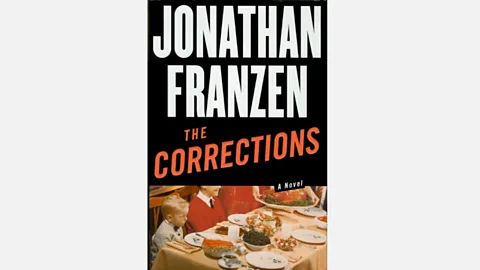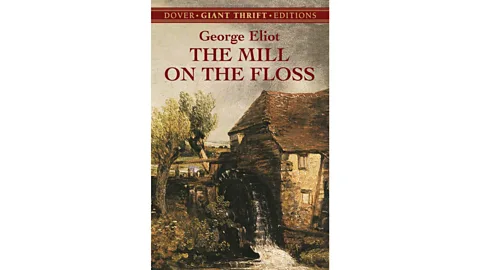Unhappy families? A novel cure
 Getty Images
Getty ImagesHow do you deal with problem parents and sibling strife? Literary agony aunt Hephzibah Anderson prescribes two readers with fiction to heal old wounds.
Dear Textual Healing,
I would like to have your advice, as I like reading a lot and I’m in trouble.
My problem is that I can’t be emotionally detached when I go to see my parents: I’m nearly 50 and they are old, so I can’t avoid the visit and I suffer from it for several hours after it has taken place. Well, it seems that nothing about [me] is all right with them, while for the rest of the world I’m OK. I have a happy and romantic love life; I’m satisfied with my teaching job and I have friends.
The relationship with my parents gives me stomach aches, stiff muscles and a mind full of horrible thoughts for days: my good humour ends and rage takes its place. I would like to be able to think about it rationally, but I can’t overcome the feeling of low self-esteem set deeply inside me.
I feel better when I can ride my bike in the countryside. I can’t say how just the sight of a blackbird eating my crumbs, or of a brave violet growing in a crack of the pavement makes my heart light and full of love.
Thank you,
N, Italy
Dear N,
Don’t be too hard on yourself. You say you’re frustrated by your inability to think about the situation with your parents rationally, but even of the happiest families find themselves regressing when they return home, reverting to well-rehearsed roles from childhood. As for the less-than-happy families, turn to the Christmas scene in Jonathan Franzen’s The Corrections. Put-upon Enid Lambert has spent pretty much the entire novel trying to get her three grown kids home for the holidays. When they arrive, they find that dementia and Parkinson’s have reduced their bullying father to a pale shadow of his former self. Clearly, something must be done to help the aged couple, but first there are all those ancient resentments to deal with.
 Recent Picador Highlights
Recent Picador HighlightsThe Lambert kids, it should be noted, are varyingly dysfunctional. Gary, the eldest, is an alcoholic banker. Middle-child Chip lost his job in academia after having an affair with a student and is now working for a Lithuanian mobster. And chef Denise, the youngest, is trying to bed both her boss and his wife. It can’t end well. You, meanwhile, have a satisfying career, friends and romance.
That’s not to belittle your feelings, it’s just that sometimes a book’s balm works by reminding us how much worse things could be. Literature is particularly good at providing examples of shockingly bad child-rearing – perhaps because authors themselves often make such lousy parents (Enid Blyton, John Cheever and Saul Bellow leap immediately to mind). Think of Lady Macbeth. Or Medea.
Mothers, for whatever reason, do seem to come off worse. Even when the true villain of the piece is the father, as in Edward St Aubyn’s brilliant, distressing Patrick Melrose series, there tends to be a mother whose wilful blindness makes things that much worse. For a less extreme but still toxic example of a monster mum, you might reach for Jeanette Winterson’s memoir, Why Be Happy When You Could Be Normal? Fans probably thought they’d got the measure of the author’s mother in her debut roman à clef, Oranges Are Not the Only Fruit, but it turns out she was even worse. It’s a miracle that Winterson has emerged from her childhood with her sense of humour intact, and humour is a very important part of this biblio-therapeutic prescription.
As for the low self-esteem that with your parents triggers, standard advice would be to write a list of things you enjoy and take pride in – which your letter already contains. Equally, I might have recommended a novel like Barry Hines’ A Kestrel for a Knave, in which a boy whose home life could at best be described as sabotaging acquires a pet kestrel and briefly glimpses his own potential. Enclosed within this ultimately sad story is a hymn to the redemptive powers of nature. Again, though, you’ve already figured that out for yourself.
One other thought: to congratulate yourself on having broken the cycle. Literature may be strewn with examples of characters who’ve been made more sensitive and thoughtful by their difficult upbringings (keep that in mind, too), but there are also the likes of Beatrix in Jonathan Coe’s The Rain Before it Falls. Cathartic and sublimely observed, the novel shows how poor parenting can blight generation after generation of a family, as may well have happened to your parents.
The last word should really go to poet Philip Larkin and his gloriously terse This Be the Verse. It’s too salty to quote here but is sure to raise a smile.
Dear Textual Healing,
As a librarian and avid reader I couldn’t agree more with your column or with the research you quote. I find literature not only offers me escape from my daily cares but also reminders to be the better person I can be, especially in my personal relationships. After reading any Henry James I’m aware of all the subtle subtexts in my interactions for months. But I have not found anything that addresses my biggest care: a younger brother who has virtually cut himself off from the family. Despite living only a few miles away, my parents and I talk to him maybe a total of 6 times a year. This is especially painful as his two sons are growing up with no real relationship with their grandparents or aunt. The only cause for this I have discerned is his wife’s dislike of our family, but I’m unclear on the exact reason for this dislike. I’m sure there must be a vast literature around family relationships, especially siblings. Maybe I should re-read The Mill on the Floss?
Great idea for a series and looking forward to your suggestions,
RS
Dear RS,
Re-reading The Mill on the Floss is sterling advice in most situations! Themes of love, home and gender are all forcefully represented in its pages but its core preoccupation is family. Everyone in this novel seems to be related and no relationship is more important than Tom’s with his sister Maggie. , though, that George Eliot’s views on family seem far from straightforward. Bonds of blood and marriage and the duties that accompany them are depicted as being hard to avoid, but they have negative as well as positive effects on her characters’ lives.
As for your particular problem, you’re right, it’s hard to think of titles that speak directly to it. That’s not really surprising, though. Writers tend to identify with the outsiders, the black sheep – roles they so often embody in their own families. Writers from DH Lawrence to Philip Roth have written about characters trying to break away from suffocating familial milieus but as a group, authors seem less ready to commiserate with the parents and siblings who are left behind. Yelena Akhtiorskaya’s Panic in a Suitcase does at least depict from both sides a family in which one son decides to separate himself. It centres on the Nasmertov family, who’ve fled from Odessa to Brighton Beach, Brooklyn. Only Pavel, a poet, has stayed behind in their homeland, and his evolving feelings for them – and they for him – are woven through an evocative study of the emigrant experience.
 Dover Thrift Editions
Dover Thrift EditionsLikewise, fiction often seems to side with the daughter-in-law in family feuds. But in Joanna Trollope’s unexpectedly dark Daughters-in-Law, that dynamic is altogether more complicated. It tells the story of the Brinkley family whose sons have married women who’ve been happy to yield to matriarch Rachel’s invasive charms. Until Charlotte comes along, that is.
As you seem to intuit, chances are that anything you attempt to resolve the situation with your brother and his wife will be seen as interfering and only make matters worse. Though it must be upsetting to think of your nephews growing up without seeing much of you and the rest of your family, I’d try dipping for solace into a book like The Forsyte Saga. It’s fallen a little out of vogue in recent decades but it’s worth recalling that its author, John Galsworthy, was a Nobel Laureate. Charting the intricacies of relationships between parents, children and siblings from 1886 to 1920, its rhythms and scope will help remind you that the current situation with your brother may well change when you’re least expecting it.
And my final suggestion? I’d work on being the aunt who sends her nephews amazing books at every opportunity. That gives you a presence in their lives in one of the most enduring ways. Maybe think twice about choosing Enid Blyton stories, though – at the same time as being a terrible parent herself, she has a lot to answer for in of promoting the myth of the ideal family.
Send an email to [email protected] describing a problem in your life that you need some help with. Hephzibah Anderson will prescribe the books that offer the best advice for your situation. Submissions should be 200 words or fewer and may be edited prior to publication.
